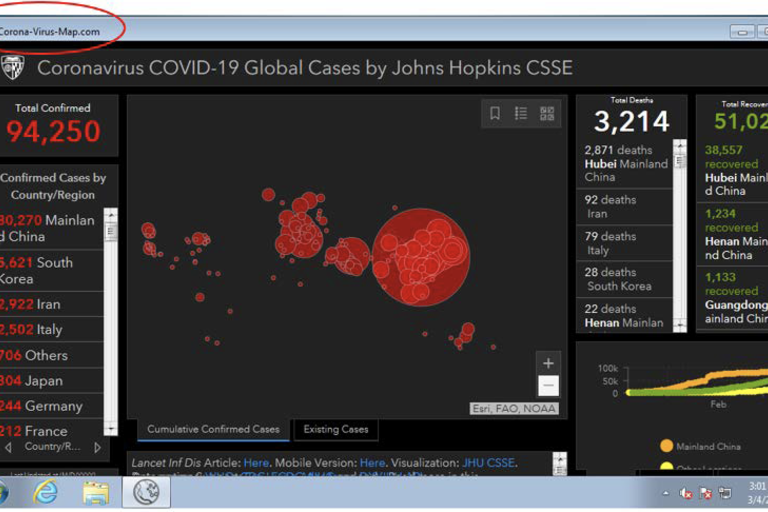March 9, 2020
Several Government (CDC, FTC, FBI, etc.) and World (WHO) organizations are reporting an increase in attackers posing as legitimate agencies trying to trick people into sharing their account access credentials or opening malicious email attachments.
Attackers have also been sending emails that feed on concerns about COVID-19 to spread malware. More than 4,000 coronavirus-related domains have been registered since the beginning of the year. Of those new domains over three percent are considered malicious and another five percent are suspicious.
For more information on these types of attacks:
- World Health Organization Warns of Coronavirus Phishing Attacks https://www.bleepingcomputer.com/news/security/world-health-organization-warns-of-coronavirus-phishing-attacks/(link is external)
- NCOV ransomware Removal Guide https://www.2-remove-virus.com/ncov-ransomware-removal-2/(link is external)
- FTC Warns of Ongoing Scams Using Coronavirus Bait https://www.bleepingcomputer.com/news/security/ftc-warns-of-ongoing-scams-using-coronavirus-bait/(link is external)
- Health Industry Cybersecurity Practices (HICP): Managing Threats and Protecting Patients publication https://healthsectorcouncil.org/hhs-and-hscc-release-voluntary-cybersecurity-practices-for-the-health-industry/(link is external)
- Hackers Hijack Routers’ DNS to Spread Malicious COVID-19 Apps
- Netwalker Ransomware Infecting Users via Coronavirus Phishing
- Fake “Corona Antivirus” distributes BlackNET remote administration tool
- MalwareHunterTeam identifies Coronavirus themed @Airbnb phishing [TWEET]
- Coronavirus-related digital fraud: 22% of Americans targeted





